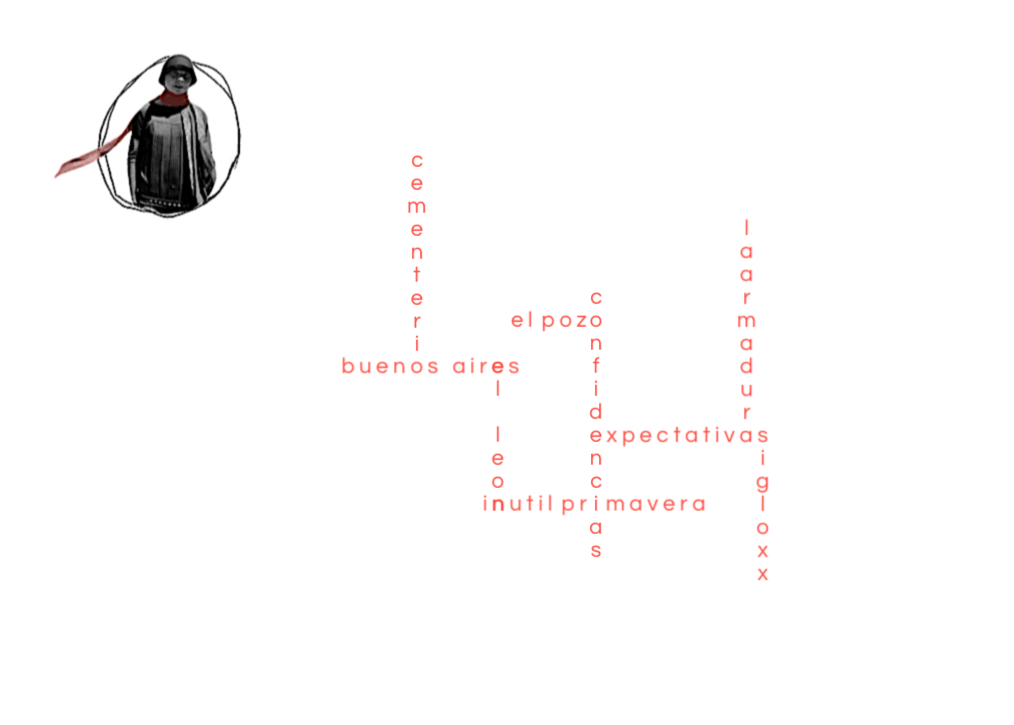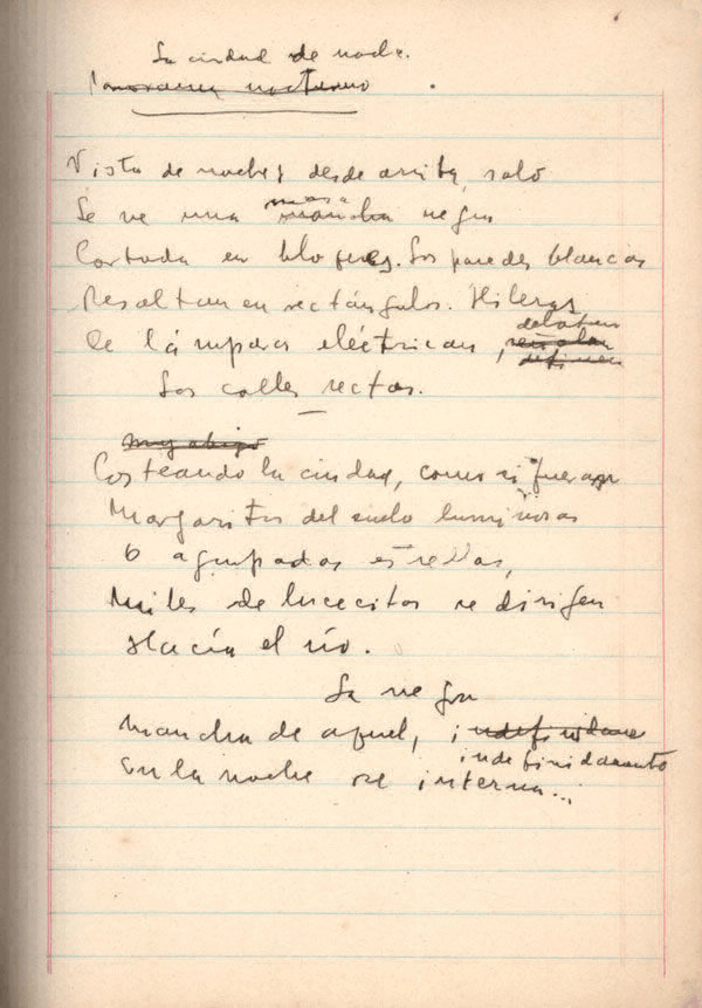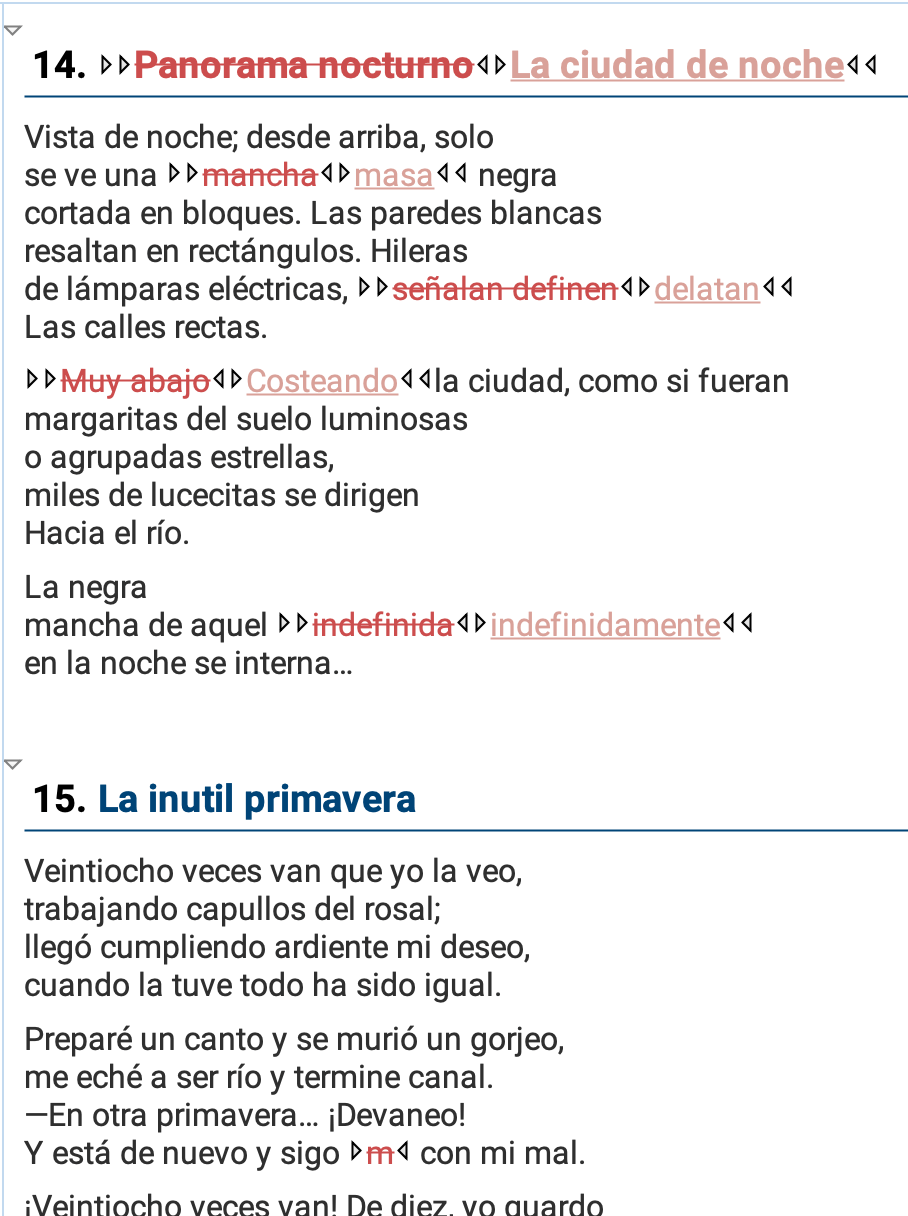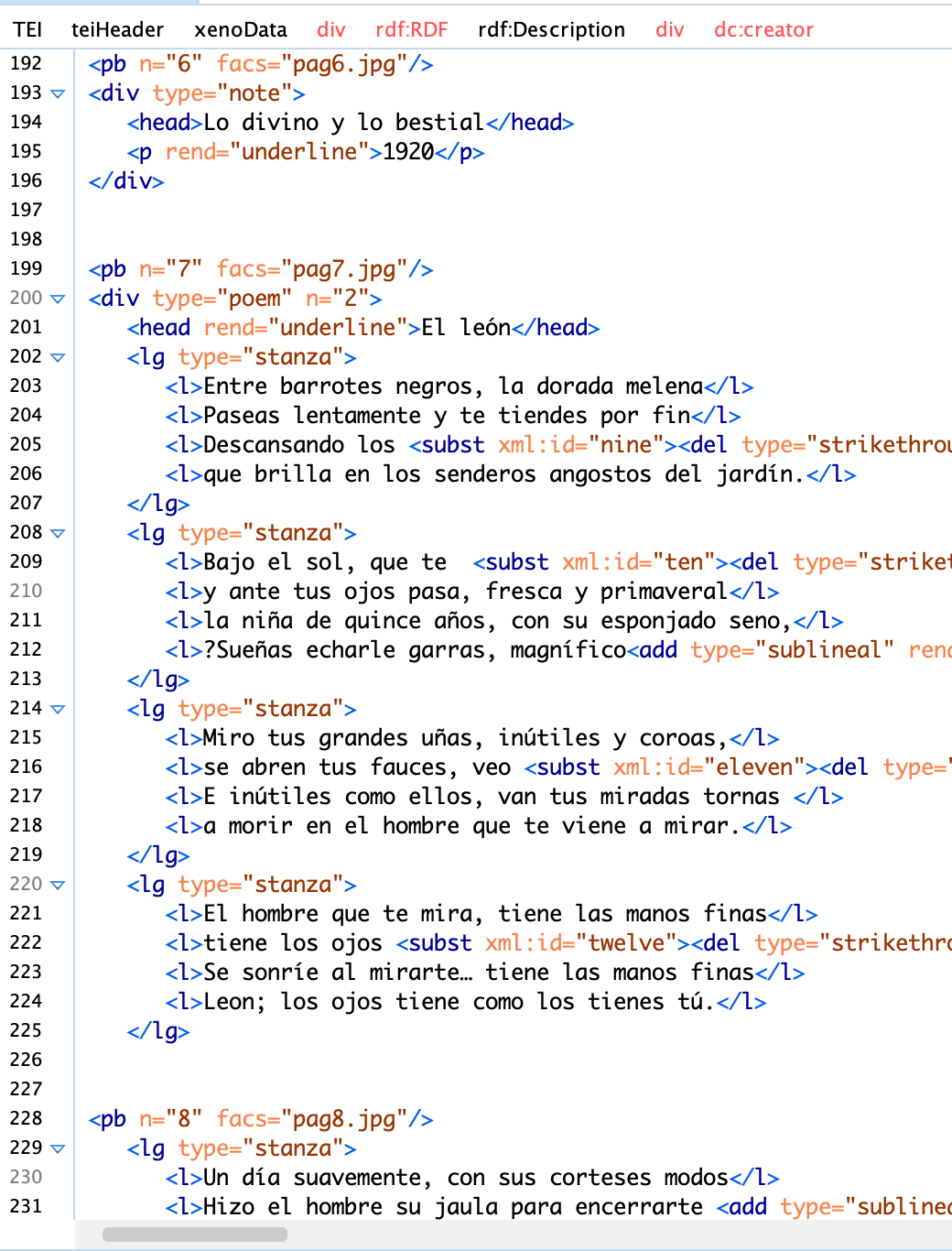
perhaps the most acclaimed Argentine poet of the modernist period, Alfonsina Storni is one of the foremost writers and intellectuals in Latin American literature. Storni was one of the first successful fighters for women to occupy spaces in American literature.
digital scholarly editing of works by influential Latin American writers is seriously lacking. this is especially true of women writers.
the publication and edition of Alfonsina Storni’s poetry book is the beginning of a large-scale project focused on creating digital documentary editions and virtual environments for the works of extremely influential Latin American writers of the modernist and postmodernist period (such as Borges, Cortázar, and Pizarnik). the larger project aims to situate these authors and artists as relevant within the global field of scholarly editing and literature.


digital Storni is a project with a global audience, geared both towards scholars and a general public.
it benefits literature scholars focused on modernist and postmodern poetry of Latin America, historians studying women’s roles in early 20th century Latin American society, art historians, as well as students and members of the general public.
by providing a set of Storni’s poems in an accurately transcribed, translated, and contextualized fashion, Digital Storni will further cement Storni’s importance in Argentine, Latin American, and global history of literature and poetry

poetry book started on September 1st, 1920
Alfonsina started this Spanish language poetry notebook almost a century ago, in September of 1920. Several poems inside the notebook have never been published. the pages contain heavily rewritten text, making it ideal for a diplomatic edition representing deletions and additions in a comprehensible way.

a diplomatic transcription of the journal
by providing a set of Storni’s poems in an accurately transcribed, translated, and contextualized fashion, Digital Storni further cements the importance of Storni in Argentine, Latin American, and global poetry.

digital text for computational research
feel free to explore and expand the TEI-XML file which contains the transcriptions, substitution information, as well as metadata about source, encoding, theme and authorship.